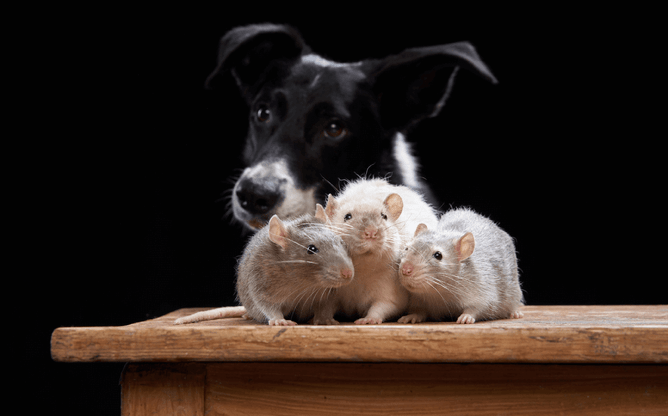Every autumn and early winter we see a number of cases of rat bait poisoning in dogs, either via direct ingestion of the rat bait or less often by ingestion of rats/mice that have died from eating the bait. It is clear that dogs find these baits very tasty. Cats on the other hand are fussy about what they eat and prefer their prey to be alive and therefore are less likely to be poisoned.
How does it work?
Rat bait has an anticoagulant effect – it prevents the blood from clotting by preventing the production of vitamin K. Vitamin K is a crucial factor for blood clotting. It can take 1-5 days from ingestion until the animal starts to show signs of bleeding as the body has stores of vitamin K that will last this long.
What signs should I look out for?
Blood in the faeces or urine
Pale gums or small hemorrhages on gums
Bruising
Bleeding from the nose
Lethargy
Laboured breathing (bleeding in the chest)
Painful joints (bleeding in the joints)
Seizures (bleeding in the brain)
Sometimes you can see coloured bait in the faeces
Can rat bait kill my animal?
Yes, without treatment bleeding is life-threatening.
What will the vet do for my animal?
If the animal has consumed the rat bait recently, the vet will make them vomit it up to prevent absorption. If the bait was ingested longer than 3 hours before, the poison will have already been absorbed.
A thorough history, physical examination and laboratory testing are usually needed to reach a diagnosis. Treatment may involve a blood transfusion and an extended period (4 weeks) of treatment with vitamin K. Repeat tests are required to determine when treatment can safely be stopped.
A blood transfusion can be life-saving in severe cases replacing clotting factors and lost blood.
The earlier treatment is sought the easier therapy is (and cheaper) and the better the outcome.
Key Points:
Dogs love to eat rat poison, so be very careful with its use.
The onset of symptoms can be sudden or quite delayed.
Urgently seek veterinary advice in all cases of suspected rat bait ingestion.
Treatment can be prolonged but is reasonably successful if started early enough.
Be aware that there are other rat bait products. Some contain cholecalciferol (Vitamin D3). This causes weakness as well as GI symptoms, seizures and increased thirst. These products damage the animal’s liver, kidneys and heart.
If you suspect your dog or cat has ingested rat bait, contact your local VetSouth clinic immediately. Prompt treatment can be lifesaving.

